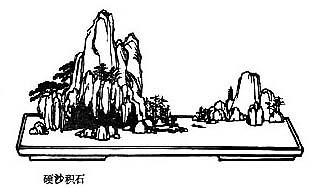Sun Zi 
 – L'Art de la guerre
– L'Art de la guerre
La stratégie chinoise ou comment s'informer, estimer, diviser, détourner, tromper, et vaincre « sans coup férir ». Tr. Amiot (fr) et Giles (en).
Des neuf changements
Sunzi VIII. 4.
Un grand général doit savoir l'art des changements. S'il s'en tient à une connaissance vague de certains principes, à une application routinière des règles de l'art, si ses méthodes de commandement sont dépourvues de souplesse, s'il examine les situations conformément à quelques schémas, s'il prend ses résolutions d'une manière mécanique, il ne mérite pas de commander. Un général est un homme qui, par le rang qu'il occupe, se trouve au-dessus d'une multitude d'autres hommes ; il faut par conséquent qu'il sache gouverner les hommes ; il faut qu'il sache les conduire ; il faut qu'il soit véritablement au-dessus d'eux, non pas seulement par sa dignité, mais par son esprit, par son savoir, par sa capacité, par sa conduite, par sa fermeté, par son courage et par ses vertus.
Amiot
The general who thoroughly understands the advantages that accompany variation of tactics knows how to handle his troops.
The general who does not understand these, may be well acquainted with the configuration of the country, yet he will not be able to turn his knowledge to practical account.1
So, the student of war who is unversed in the art of war of varying his plans, even though he be acquainted with the Five Advantages, will fail to make the best use of his men.2
Giles VIII.4,5,6.

L'Art de la guerre – Sun Zi VIII. 4. – Chinois off/on – Français/English
Alias Sun Tzu, Sun Wu, Sun Tse, Sunzi Bingfa, Souen Tseu, Souen Wou, 孫武.
Le Canon des Poèmes, Les Entretiens, La Grande Étude, Le Juste Milieu, Les Trois Caractères, Le Livre des Mutations, De la Voie et la Vertu, 300 poèmes Tang, L'Art de la guerre, Trente-six stratagèmes
Bienvenue, aide, notes, introduction, table.
Index – Contact – Haut de page
